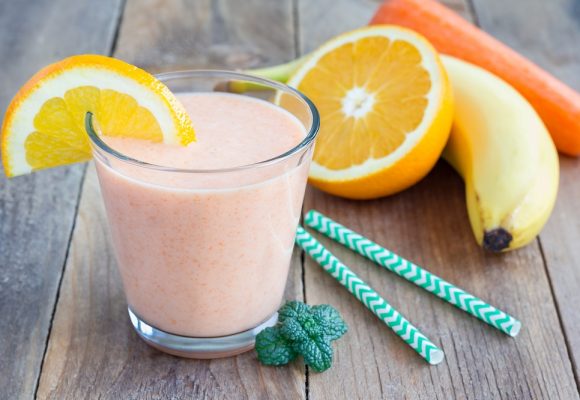Most of us have a basic idea of how digestion works: You eat something, the stomach acids break it up in your belly, and then, somehow or another, the nutrients are sucked out and the rest is processed through.
That about sums it up, but, when you understand the finer points of the process, it will be much easier to keep your digestive system healthy — and a healthy digestive system is a foundation to overall health.

The key to understanding how digestion works is understanding fiber. So let’s start there. Here’s what you should know:
Two Types of Fiber?
The first thing to know is that there are two types of dietary fiber, and you need both of them to maintain healthy digestion.
- Soluble Fiber — Soluble fiber dissolves in water, turning into a gel that slows digestion so that your body has time to get all those nutrients out of what you’ve been eating. You get soluble fiber from oats, beans, and certain fruits and vegetables.
- Insoluble Fiber — Insoluble fiber, found in bran flakes and vegetables, absorbs water but stays solid. This lends bulk to waste and makes it easier for your body to process it through the digestive system. Think of it like your body’s cleanup crew, or scrubbin’ bubbles for your intestine.
A typical adult is recommended to get about 25 to 30 grams of fiber in a day. Unfortunately, most of us are only getting about 15 grams — just half of what we need.
Why aren’t we getting enough fiber? Well, for many of us it comes down to the fact that we’re just so busy these days. Throughout the day we tend to grab whatever we can to eat, and that’s not always going to add up to 30 grams of dietary fiber.
So the first thing we need to do is be more conscious and aware of what we eat. Find the time to eat well, and you may find even the most hectic day being a little easier to get through.
What Are Probiotics?
You don’t want bacteria on your hands, but you do want bacteria in your gut. These are probiotics — yeasts and bacteria that help to break food down and regulate how your body is making use of what you’re eating.
Probiotics like lactobacillus, found in yogurt and fermented foods, can help to prevent diarrhea. Lactobacillus can also help you to digest dairy, which is why you may see people who are lactose intolerant but who eat yogurt by the gallon. Bifidobacterium can help to ease symptoms of IBS and can be found in dairy products.
Other bacteria and yeasts do other things. It’s a whole colony of helpers in there.
Soluble fiber can help to feed these bacteria and keep them going, but if you’ve been eating a poor diet for a long time, or if you have recently taken antibiotics, your probiotics supply may be just about depleted, and you may need supplements to help you rebuild your little village of helpful bacteria.
With all this in mind, what can we do to help maintain our digestive health?
- Eat slowly. Chew your food thoroughly and give the last bite time to digest before the next one.
- Eat more beans, oats, bran, fruit, and vegetables.
- Get plenty of water — around four quarts a day for a typical adult.
- Work your core — a walk, a bike-ride, crunches, jogging, anything to strengthen your abdominal muscles.
And consider using Herbalife ingredients to help you out along the way. We can’t always find the time to eat 30 grams of fiber a day, but one scoop of Active Fiber Complex and a scoop of Simply Probiotic goes down easy. You can add these powders to any liquid, such as water, tea, or a protein shake.



